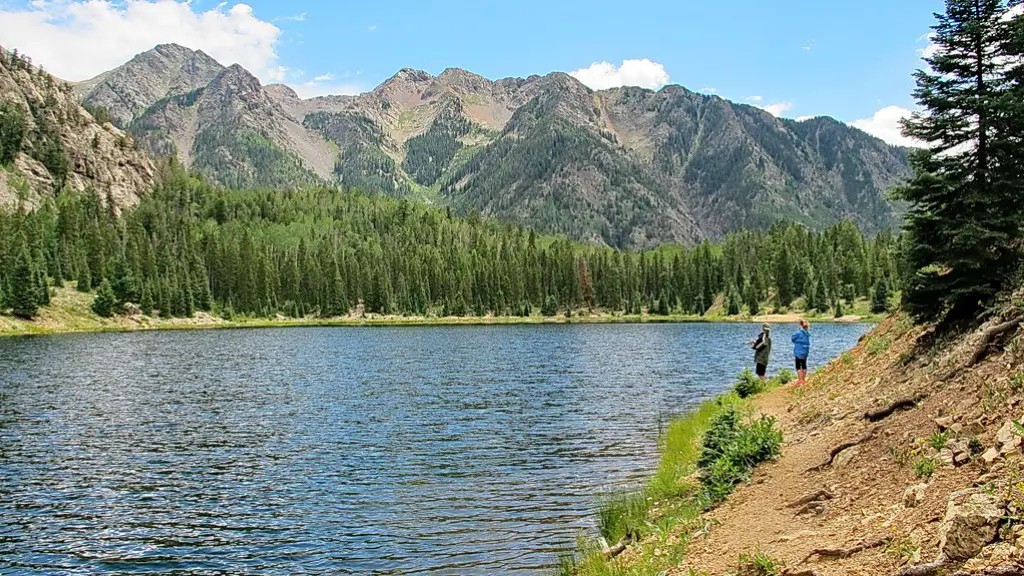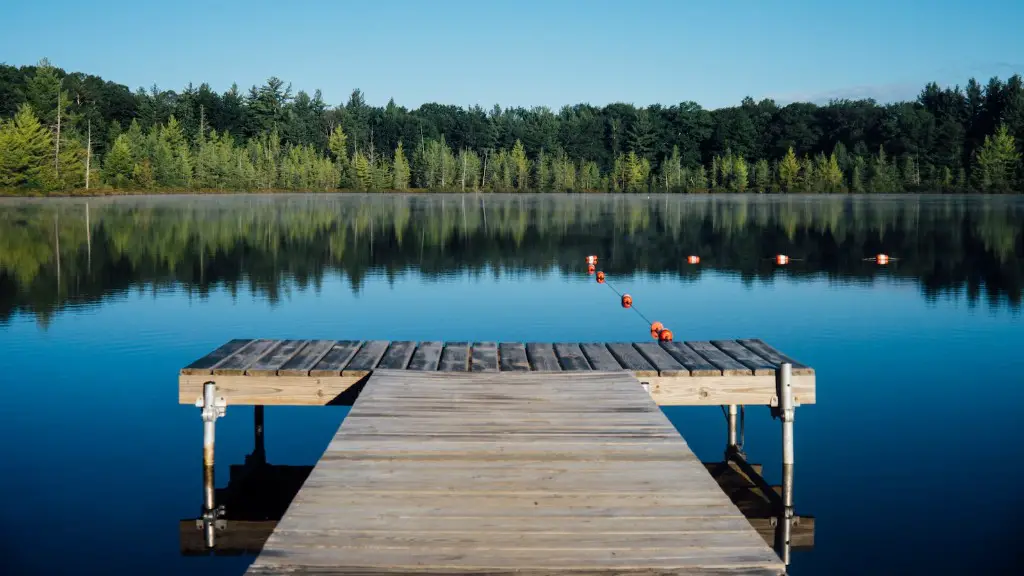Impact on Local Ecosystem
Lake Baikal is home to thousands of species of plants and animals, making it one of the richest bio-diversity areas in the world. It contains more than 1,000 species of plants and over 2,500 species of animals, many of which are found nowhere else on Earth. The lake also serves as an important natural habitat for many migratory birds, giving them a place to rest and refuel after long migrations. Most of the animal species living in Lake Baikal are endemic, including the world’s only freshwater seal species. The presence of these species not only ensures the lake remains an important biodiversity hotspot, but also plays an important role in maintaining the lake’s health and integrity.
Besides its immense biodiversity, Lake Baikal also provides other important ecosystem services. The lake is a major source of drinking water and an important source of freshwater for local industries and agriculture. The lake’s hydrological system regulates the local climate, sustains soil fertility, and prevents flooding. The lake’s forests also play an important role in climate regulation and cycle important chemicals like carbon and nitrogen. The lake’s watershed extends over 10 percent of the Eurasian continent, making it one of the largest in the world.
Impact on Economic Activity
Lake Baikal is a major source of income for the local economy and has been for generations. Fishing has long been one of the most important economic activities in the region. Commercial fisheries employ thousands of people, and the lake’s abundant fish and other wildlife are major sources of food. Aquaculture is also becoming increasingly important.
Tourism is also an important part of the local economy. Lake Baikal is a major tourist destination, with visitors coming from all over the world to enjoy its spectacular scenery, unique wildlife, and stunning views. The region is also home to numerous cultural sites, including historical monuments and churches.
Environmental Significance
Lake Baikal is often referred to as the “Galapagos of Russia,” a reference to the Galapagos Islands in Ecuador, home to some of the world’s most unique wildlife. The lake contains 20 percent of the world’s unfrozen freshwater and is the deepest lake in the world, with a depth of over a mile. It is also one of the world’s oldest lakes, with an estimated age of 25–30 million years.
Lake Baikal is one of the most important freshwater systems on the planet. Its immense biodiversity, pristine condition, and sheer size make it an invaluable resource and a global treasure. It is also a key source of drinking water for local communities, a major source of freshwater for local industries, and an important regulator of the local climate.
The Threat of Pollution
Unfortunately, Lake Baikal is under threat from pollution. Industrial pollution and runoff has caused levels of mercury and other contaminants to rise, putting at risk the lake’s fragile ecosystem. Decades of overfishing have also had a devastating impact on fisheries and other species living in the lake. Climate change is also likely to have an increasingly negative impact on the lake’s environment in the coming years.
Protection Measures
In response to the threats facing Lake Baikal, various protective measures have been enacted. In 1996, the Russian government declared Lake Baikal a national park, affording it special protection from industrial pollution and other threats. In recent years, there have also been efforts to reduce overfishing and promote sustainable fishing practices.
More recently, the Russian government has unveiled a sweeping plan to restore Lake Baikal and protect it from environmental damage. The plan calls for an increase in environmental monitoring, better enforcement of anti-pollution measures, stricter regulations on commercial fishing and aquaculture, and additional efforts to reduce climate change impacts.
Community-led Conservation Efforts
In addition to government efforts to protect the lake, local communities have also been playing an important role in protecting Lake Baikal. The Baikal Alliance, a grassroots conservation group, has been working to protect the lake’s unique environment. The group has been working to raise awareness of the lake’s importance, as well as to promote sustainable fishing and fight illegal fishing activities.
The Baikal Alliance has also worked to ensure local communities are provided with the resources and knowledge they need to protect the lake. They have organized workshops and awareness campaigns to educate locals about the importance of preserving the lake’s environment and wildlife.
Global Impact
The importance of Lake Baikal is not confined to Russia. The lake’s immense ecological significance has made it the focus of international attention, with the United Nations declaring it a World Heritage Site in 1996. The international community has also begun to recognize the importance of protecting Lake Baikal and its unique environment, with numerous international organizations and governments, including the United States, providing support and aid for conservation efforts.
The international community has also recognized the importance of the lake for research and development. The International Geographic Institute located an S-shaped underwater laboratory beneath the lake in 2010, and numerous scientific projects have been conducted in and around the lake.
Conclusion
Lake Baikal is of tremendous importance, both to the people of Russia and to the world. Its immense ecological significance and its unique wildlife make it one of the most important freshwater ecosystems in the world. The lake’s economic importance is also undeniable, with the lake serving as an important source of income for local communities and a major tourist destination. Unfortunately, the lake is under threat from pollution and other threats, but fortunately, there are efforts in place to ensure the lake’s survival. With the help of the international community, the people of Lake Baikal can ensure its future is secure.


